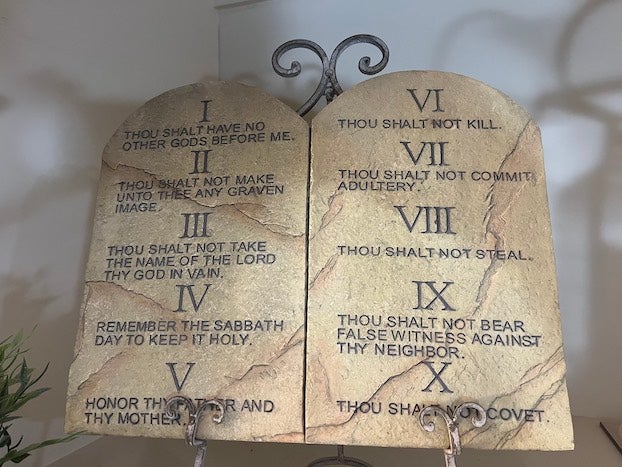Jim Beam column:Voters will see six amendments
Published 6:32 am Saturday, June 21, 2025

- Much of the job protection that Louisiana civil service workers enjoy will disappear if voters approve an amendment next April that changes that protecction.
Louisiana legislators approved only six of the 21 proposed state constitutional amendments that were filed for their fiscal session that ended June 12. Unfortunately, they approved Senate Bill 8, one that would make it easier to move classified state workers whose jobs are protected by the state’s civil service system into unclassified positions that aren’t protected.
The amendment sponsored by Sen. Jay Morris, R-West Monroe, passed the Senate 28-8 and the House 70-28, the exact two-thirds vote needed. Morris sponsored a similar bill in 2024 that came up two votes short of 70.
The civil service system was passed during the term of Gov. Sam Jones of Lake Charles (1940-44) in order to avoid the scandals that occurred after U.S. Sen. Huey Long was assassinated.
State employees, those appointed by Long when he was governor, were required to give 5% to 10% of their salaries to Long. They put that money into what was called the “Deduct Box” that was never found.
An AI overview said, “On the day of his assassination, when asked about the box’s whereabouts, Long replied, “I’ll tell you later, Seymour,” but he never revealed its location.
Jimmie Davis was governor from 1944-48, and Earl Long, Huey’s brother, was governor from 1948-52. Earl Long had a law passed allowing him to appoint members of the Civil Service Commission. That law didn’t go far enough to suit him, so Long called a special legislative session in September of 1948 to abolish civil service.
Robert F. Kennon was governor from 1952-56. He campaigned on taking “a civics book” approach to government by eliminating corruption and he re-established the state’s civil service system during his first year in office. SB 8 puts the system in danger again. And here is the rest of the amendment story:
Five of the amendments that were approved are scheduled to be on the April 18, 2026, ballot seeking statewide voter approval. The sixth one is scheduled for the Nov. 3, 2026, ballot.
One proposal that definitely deserved to die would have added two members to the five elected members of the state Public Service Commission that regulates public utilities. Those two would have been appointed by Gov. Jeff Landry.
The Senate wisely decided not to eliminate the Revenue Stabilization Trust Fund amendment that would have moved trust funds to the Budget Stabilization Fund (the rainy day fund). It used $1.2 billion of the $3.9 billion in the revenue fund for infrastructure improvements (roads, bridges, ports, airports), and local water systems and college maintenance that has been delayed much too long.
In addition to SB 8, here are the other four April 18, 2026, amendments:
Senate Bill 25 (Act 218) allows the new city of St. George in East Baton Rouge Parish to create a school system. It cleared the Senate 26-5 and the House 70-24.
House Bill 63 (Act 219) would change the mandatory retirement age of judges from 70 to 75. It passed the House 81-16 and the Senate 26-13, the exact two-thirds needed in the Senate.
Similar amendments have been defeated by voters. The last vote came in 2014 when 58% of the voters who cast ballots rejected the amendment.
HB 366 (Act 221) would authorize parishes to exempt business inventory taxes from property taxes and they would receive state funding if they exempt those taxes. It passed the House and Senate unanimously.
HB 473 (Act 222) would eliminate three education trust funds in order to fund $2,250 permanent annual raises for certified teachers and $1,125 for school support workers. The amendment passed the House 95-1 and the Senate unanimously.
Here is the Nov. 3, 2026, amendment:
HB 300 increases the income limit for qualifying for the special property tax assessment level from $100,000 to $150,000 beginning in 2026. It would be adjusted for inflation annually beginning in 2028. The special assessment protects those who qualify from higher taxes.
People who are 65 or older qualify for the special exemption along with spouses of armed forces and National Guard members who are killed in action and people with disabilities.
We can expect to see much more news about the amendments before the first five show up next April 18 on state ballots.
Jim Beam, the retired editor of the American Press, has covered people and politics for more than six decades. Contact him at 337-515-8871 or jim.beam.press@gmail.com.
| ReplyForward
Add reaction |





